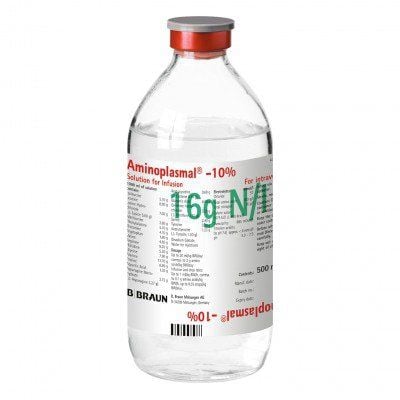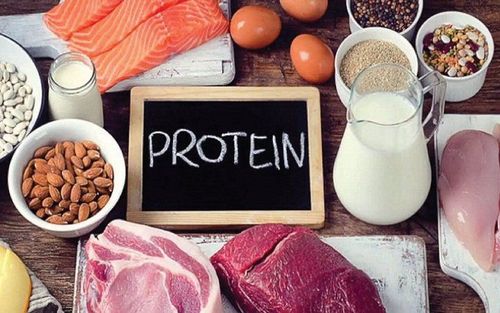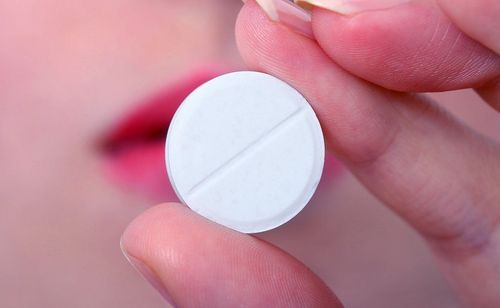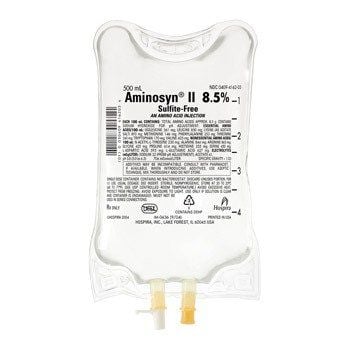This is an automatically translated article.
Including protein in a child's diet is important for the overall development of a child, but not all sources create the same amount of protein. Find out some protein-rich foods for kids in the article below.1. What is protein?
Protein is an essential nutrient for the functioning of our body. Protein helps build blood, bones, enzymes, and supports our body as it continually makes new cells. It also provides the fuel and energy our bodies need to move and function every day.
Protein is really important for a child's growing body. However, parents should realize that not all protein sources create the same amount of protein. Choose healthy, high-quality sources of protein to help keep your baby strong and healthy.
2. How much protein do children need?
Adding protein to children's diets is extremely necessary. Children usually need about 20-35 grams of protein per day. The amount of protein depends on the age, sex and weight of the child. If you're having trouble, talk to your doctor for help.
Nowadays, most children get enough protein in a day, but parents should focus more on where children get that protein.

Hãy trao đổi với bác sĩ để bổ sung protein cho trẻ hợp lý
3. The healthiest sources of protein for kids
Parents who want to add protein in their children's food should choose plant-based proteins, seafood and lean meat.
Plant Protein: Plant-based protein sources are one of the healthiest options for kids. Include these plant-based sources of protein in your child's diet:
Beans: Mix beans in your child's meals. Nut butter: Use peanut butter and other nut butters with no added sugar. Nuts: Peanuts, almonds, pistachios, and walnuts are great sources of protein. Whole grain bread: Use whole grain slices instead of white bread. Seafood Protein: Seafood is an excellent source of protein, however, some children may develop an allergic reaction when eating them. Consult a doctor if your child has symptoms of an allergic reaction. Children 2 years and older, parents should give them 2 servings of fish per week. Parents continue to offer kid-friendly seafood, such as soft-textured fish that are better for kids' taste buds:
Pollock. Flounder. Tilapia. Tuna. Protein in lean meat: Protein found in lean meat is one of the most popular sources of protein for kids like chicken or turkey. Choose lean sources of meat that are lower in saturated fat and limit your intake of red meats like beef or pork. Some tips to keep lean meat fresh:
Grill or saute meat instead of frying. Remove the chicken skin. Use herbs and spices for seasoning instead of salt and butter.
4. Healthy protein choices for picky eaters
For picky eaters, parents can add protein to their children with some ideas such as:
Involve your child in meal planning, grocery shopping and food preparation.
Limit snacking one to two hours before a meal.
Provide healthy protein rich foods for children:
Start breakfast with eggs or milk. You can add a little syrup to the milk or create the shape of eggs into many funny shapes that attract children. Lunch with burgers and vegetables that your baby likes: If your child is a picky eater and does not want to eat rice, you can absolutely give your child bread. Beans can be added to your child's favorite food. Give your child a snack with cheese. Yogurt and cereal: These are two extremely kid-friendly sources of protein. Many children love to eat because they are easy to eat and delicious. Learn more picky eaters tips to help your child develop healthy habits that last a lifetime.

Bổ sung protein cho trẻ qua nguồn sữa chua
5. Do children need a protein powder supplement?
Children usually get enough protein from the foods they eat. Protein powders, milkshakes or supplements are not recommended unless your child has specific needs.
Therefore, it is necessary to take protein powder supplements for children with chronic diseases such as cystic fibrosis or childhood cancer. Because these children are often not provided with adequate nutrition due to anorexia or malabsorption of nutrients.
Some studies indicate that the use of protein powder may not significantly improve the weight, height or nutritional status of children. It should be noted that these methods may not be applicable to healthy children. Healthy children do not need additional protein powder. Talk to an expert to get help.
Children who do not eat properly are at risk of micro-mineral deficiency causing anorexia, growth retardation, malabsorption,... If they notice the above signs, parents should supplement their children with products. The supplement contains lysine, essential micro-minerals and vitamins such as zinc, chromium, selenium, and B vitamins to help fully meet the nutritional needs of children. At the same time, these essential vitamins also support digestion, enhance nutrient absorption, help improve anorexia, and help children eat well.
Parents can learn more:
Signs of zinc deficiency in children
Micronutrient deficiency and failure to gain weight in children
Please regularly visit Vinmec.com website and update useful information to take care of your child. Take care of the baby and the whole family.
Reference sources: childrens.com, tokkao.vn













